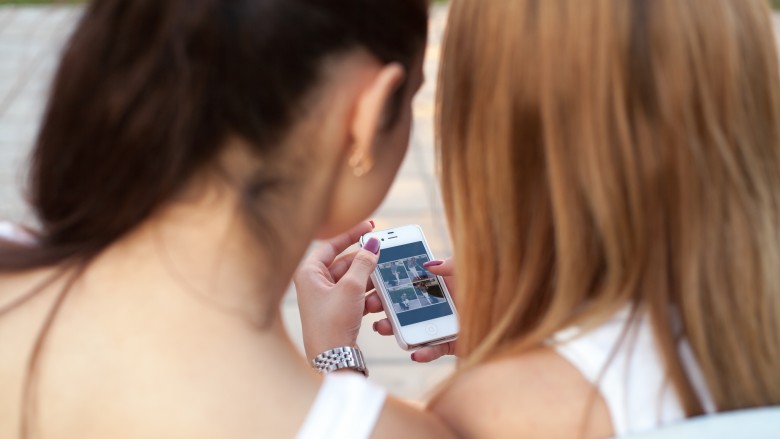The Real Reasons You Should Stop Procrastinating
As I sit down to write this, I immediately start to feel the tempting allure of procrastination. Oh look, there's that book I've been meaning to read. I should really start meditating more. I haven't worked out in a couple days. The baby was up all night — maybe I should just take a nap. The temptations are endless, and willpower can only take us so far.
Procrastination is natural for all of us, but it turns out it's wreaking havoc on our lives. From lost money to poor health, procrastination steals our time and peace. I spoke with some of our favorite psychologists and procrastination experts to learn why it's time to stop procrastinating and where to start.
What is procrastination?
Psychologist Dr. Bruce Liese describes procrastination as an avoidance of our obligations. Procrastinating is merely putting off the inevitable. If you wait until the last minute to buy a birthday gift for your sister, you'll most likely feel stressed and not enjoy the buying process. However, what if you want until the last second, have a terrible time finding something, but then she absolutely loves the gift? According to Dr. Liese, this is where the problem comes in. When we "get away" with our procrastination habits, we create a cycle of doing it again and again, because it worked in the past. This sets us up to chronic procrastinators.
We are wired to procrastinate
We all know what it feels like to procrastinate, because we've all done it. It turns out our brains are actually designed to procrastinate. "We've got the deck stacked against us," Timothy Pychyl, a psychology professor at Carleton University in Ottawa told the Globe and Mail. When we make plans for the future, we use the frontal cortex of our brains, but when it's time to carry out those plans, the limbic system becomes involved.
Piers Steel, professor of psychology at the University of Calgary, and author of The Procrastination Equation also told the Globe and Mail that this limbic part of our brains responds to the environment and emotions. It's also stronger than the planning frontal cortex. That explains why you were excited to take on that new project at work, but now that it's time to work on it you're walking around the office chatting.
Just make sure you don't use your biology as an excuse to put off working out one more week. Even though procrastination can feel natural, its effects mess with you.
Procrastination will cost you (literally)
Waiting until the last minute to work on a project or buy Christmas gifts feels stressful in the moment, but once you get it done you feel better. Unfortunately, doing this on a regular basis will start affecting every area of your life, starting with your bank account. It's estimated that procrastination can cost up to 25 percent of a worker's annual salary. According to H&R Block, putting off your taxes can cost you hundreds come April.
Procrastination could also cost you at the doctor's office. The copay for regular checkups is minimal, but if you put those off and develop a chronic disease, you'll be dealing with huge insurance and hospital bills. Studies show that procrastinators are less healthy than their punctual friends. "In sum, it may be that putting off looking after one's health both preventively and therapeutically, rather than stress alone, is responsible for procrastinators' poorer health," Dr. Pychyl told the National Post.
Procrastination can make you less productive (Facebook, anyone?)
When you put off your to-do list, you accomplish less. Some people argue that they need to procrastinate in order to be productive. They work well "under pressure" and thrive in high-stress environments. Unfortunately, even professional procrastinators can't make it work for them. "If I have a dozen things to do, obviously #10, #11, and #12 have to wait," explains APS Fellow Joseph Ferrari, a professor of psychology at DePaul University. "The real procrastinator has those 12 things, maybe does one or two of them, then rewrites the list, then shuffles it around, then makes an extra copy of it. That's procrastinating. That's different."
Now, chronic procrastinators also have to deal with the ultimate enabler — the internet. Social media only makes procrastination worse. Dr. Bruce Liese explains that our brains now have to decide between the temporary pain of working on the project that we want to avoid or the instant gratification of scrolling through our friends' pictures. Social media rewards us for procrastinating, so the best way to combat the urge is to log off when it's time to work.
Procrastination will stress you out
Research shows that chronic procrastinators experience more stress and less well-being than the people who work ahead. Even those who prefer to wait until the night before the project is due to start working are suffering from their procrastination. We don't actually get more done in those final hours, and the stress hurts us. "Thus, despite its apologists and its short-term benefits, procrastination cannot be regarded as either adaptive or innocuous," APS Fellow Dianne Tice and APS William James Fellow Roy Baumeister explain. "Procrastinators end up suffering more and performing worse than other people."
Procrastination is hard on your heart
Of course, being chronically behind on projects will add stress to your life. We feel stressed in the moment, but better as soon as we complete those projects. Unfortunately that stress has already done some physical damage. Procrastinators are at an increased risk for heart disease and high blood pressure.
Psychological scientist Fuschia Sirois of Bishop's University in Quebec found that chronic procrastinators have a higher rate of heart disease, regardless of their age, race, educational level or other factors. Procrastinators also report more headaches, digestive problems, colds, and flus than non-procrastinators. And if you've ever tossed and turned all night worried about how you were going to get everything done, then you know that procrastinators are also more likely to experience insomnia.
In addition to putting off work and projects, procrastinators put off health behaviors like going to the doctor or working out. Sirois has found in her research that procrastinators typically avoid dealing with a looming problem while at the same time beating themselves up for putting it off in the first place. You feel stressed about the fact that you haven't trained for that 10K you're running with your friends this month, and because you feel so bad about it, you avoid it even more. This cycle is what keeps procrastinators stuck and constantly stressed. This stress is hard on our bodies. "Current theory and evidence linking procrastination to health builds a supportive case for this personality trait as being associated with, and being a vulnerability factor for adjustment to HT/CVD, two related and serious chronic health conditions," Sirois wrote in the Journal of Behavioral Medicine.
What can you do about it?
Once you're in the habit of procrastinating, it can be hard to see a way out. If you're already swimming in overdue projects, how can you ever get ahead? The answer is actually much simpler than we make it out to be. We interviewed procrastination experts, and they all agreed on the first step to overcoming the beast. Just start.
I know, you were hoping for something really new and insightful. I was too, but it turns out that the best way to change this habit is to break it immediately. Just start that project, if only for 10 minutes. Doing this "primes the pump for action," Dr. Pychyl told the Globe and Mail. Research has shown that once you start a task, you will see it differently, and it won't seem so overwhelming. It also shows that our self control and willpower are muscles that we can strengthen. Start with a small task and then build up from there.
Get honest about your procrastination
"Procrastinating is really a deeper issue," relationship and lifestyle counselor Audrey Hope told me. "If you try to heal it by just doing superficial things, you will never get to the root of the problem and you will only temporarily solve it." Hope recommends starting by getting to the root of the procrastination. What is the fear behind the procrastination? Are you avoiding working on your maid of honor speech, because deep down you don't think you're a very good speaker? If you never really work on it, then you can just blame a lack of preparation if you bomb, instead of dealing with the underlying belief that you just can't do it. "If a procrastinator truly wants to change, then they need to get real about the problem being deeper than what it looks like," Hope told me.
Dr. Pychyl recommends asking yourself what you are getting out of your procrastination. Maybe you feel better in the moment, but you're only hurting your future self. It's actually a form of self abuse. "We really mistreat our future self," Dr. Pychyl told the Globe and Mail. "When we put things off, we're putting it off for ourselves."
Make a procrastination game plan
The best way to avoid procrastination is starting with a realistic plan. Co-founder of Smarter Time Anna Winterstein recommends starting with a master plan. Not only can this relieve the anxiety of such a big project in front of you, but you may be surprised at how much easier it will be than you thought. "Sit down at your desk now and break down your project into little, manageable modules," Winterstein told me. "Then organize them by order of priority, estimate how long each task will take and block them out in your calendar. Don't overload yourself, take it easy so you set yourself up for success." Winterstein explained that this method will work for goals in one week or one year. As long as you know where you're going and how to get there, you can keep moving forward.
If you tend to become easily distracted, Winterstein recommends working for no more than 20 minutes at a time. This will keep you focused, and 20 minutes is still long enough to make progress on your project.
Use time blocking to beat procrastination
One way to beat procrastination is to set up a specific schedule for each task you want to accomplish. The technique of time blocking simply refers to designating a specific time block for a specific project. This allows you to focus, because you're not jumping from one project to another. If you've been meaning to clean out your hall closet, schedule one hour on Saturday as opposed to waiting until you "have a few minutes."
I spoke with Maura Thomas, founder of RegainYourTime.com and author of Personal Productivity Secrets, and she recommends using time blocking very strategically. Only use time blocking once in awhile for important tasks and projects. Thomas recommends blocking short periods of time in the near future. "Don't block your time too far in the future, because it's too uncertain," she told me. "To get important things done, block time on your calendar today, or tomorrow, but go too far in advance and your priorities will change."
Once you've blocked your time, keep it productive by eliminating all distractions. "Close your email client, shut off any Twitter, Facebook, LinkedIn (etc) notifications, silence your ringer, shut off the television, etc," recommends Thomas. "If you need noise, play instrumental or classical music."
Start at the end
I spoke to the creator of the Right Margin app, Shivani Bhargava, and she recommends starting with your big goal, then working backwards to come up with a plan. Bhargava helps authors find the time to write their novels, so she knows a thing or two about beating procrastination. If you have a project due in one month, Bhargava recommends setting mini-deadlines for yourself in two weeks, then one week, then three days, then tomorrow. "By breaking things down, which is easy and just takes thought and a planning tool, I'm way more likely to make progress on something," she told me. "Instead of thinking and worrying about a large project I need to get done, I decrease the effort by thinking about my next steps in small, very achievable task lists."
The biggest benefit to breaking down your project into bite-sized chunks? You'll avoid getting overwhelmed and you'll feel accomplished each time you hit a mini-goal.
Set up a reward system
Sometimes, even when we know something is bad for us, like procrastinating, we still can't quite shake the habit. If you're feeling particularly stuck, try tricking yourself into getting started. A reward system can help you kickstart your productivity. Audrey Hope recommends starting any project by visualizing yourself completing it. Those good feelings of accomplishment will help get you started. Then decide how you will celebrate that accomplishment. Maybe you'll take yourself out for a coffee and pedicure once you launch your company's new product. Imagine how good the coffee smells and how the warm water feels on your feet. Keep coming back to those good feelings as you work on your project.
Procrastination steals your time
At the end of the day, our time is our most precious commodity. Time with friends and loved ones is something we will never get back. "When we waste it [time], we waste life itself," Dr. Pychyl told the Globe and Mail. Your life is far too precious to waste on little tasks and projects. Whatever you've been putting off, sit down and start today. In 10 minutes, you'll be so glad you did!














